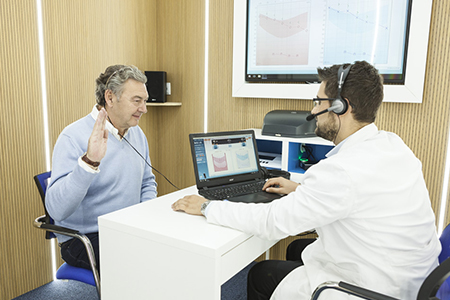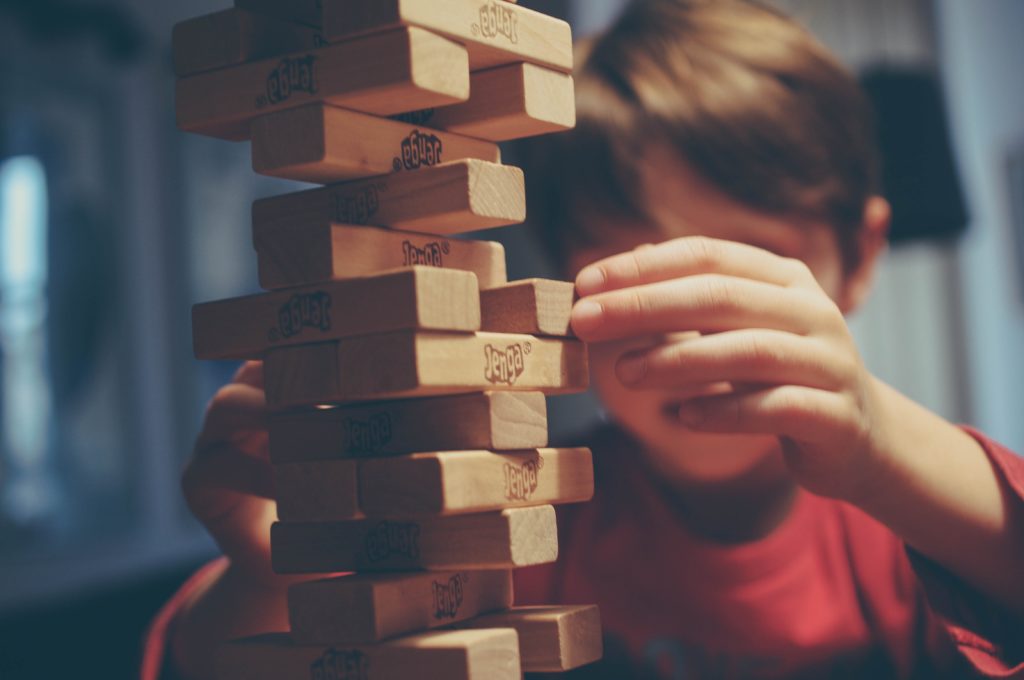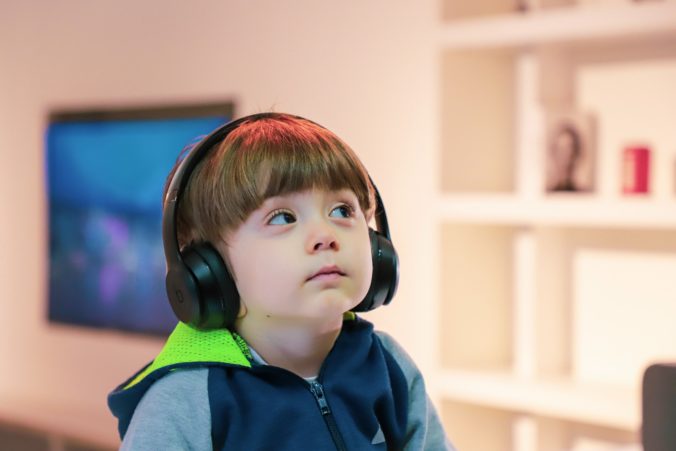Auditory training is designed to help people make better use of their residual hearing, independently of their hearing ability. Below, we explain who this hearing therapy is aimed at and describe the type of exercises it involves.
Auditory training
Auditory training is a rehabilitation process designed to stimulate and improve auditory function and the ability to process and understand sounds.
Before commencing an auditory training programme, it is important to carry out a comprehensive hearing exam with a detailed audiometric hearing test to assess the individual’s hearing acuity. Then, depending on their hearing ability, the individual learns techniques for capturing and interpreting sounds clearly and correctly.
Who needs auditory training
Auditory training can help people who suffer deafness or hearing loss to recover the ability to process and understand spoken language correctly and recognise sounds more fluidly.
In many cases, when someone with age-related hearing loss or other hearing issues decides to use a hearing aid, an auditory rehabilitation programme is needed to help them to readapt to certain sound frequencies.

Photo credit: Audifón
This type of auditory training consists of a series of sessions based on exercises that help to retrain the ear to process and recognise different sounds and frequencies. For example, one of the standard exercises involves listening to a sound or white noise alternated with speech (an advertisement on the television, a radio host, etc.).
This type of hearing therapy can also prove extremely useful for children with an APD (auditory processing disorder) or an autism spectrum disorder (ASD). It can also be beneficial in treating other sensory processing disorders such as sensory hypersensitivity or hypersensitivity to noise.

Last, but by no means least, auditory training is also ideal for people whose professions require exceptional auditory and sensory acuity, such as musicians.
The musical ear: professional auditory training
On some occasions, the motive for seeking auditory training has nothing to do with rehabilitation: professionals in the music industry, such as producers, sound technicians and engineers or musicians, train their hearing to increase their performance and improve their musical ear.
In these cases, auditory training is an essential tool for optimising and enhancing the perception, analysis and technical execution of a musical instrument or production.
Apps for musical ear training
There are currently several applications and software programmes for musical ear training on the market. Below is a list of 9 apps for musical ear training:

- Ear beater
- SoundGym
- Earmaster
- Note ear training
- Pitch improver
- Blind listening test
- iZotope
- Better ears
- Ear Teach
If you have any doubts or queries on auditory training, please leave a comment below this article or get in touch with us and we’ll get back to you as soon as we can! 🙂


I’ve been having a hard time hearing things as well as I normally can, and I’m not sure what to do about it. I didn’t know that auditory training was a thing that you can have done! That seems like a great way to help ensure that I can hear things properly. I’ll talk to a professional to see if they can help me out with training.
Hi Braden! Thanks for your comment! Regards 🙂
kiversal, Not yet for mine. I didn’t have the foggiest idea about that sound-related preparing was a thing that you can have done! That appears as though an extraordinary method to help guarantee that I can hear things appropriately. I’ll converse with an expert to check whether they can assist me with a trip with preparing.
Great content! This is exactly the sort of thing I was looking for. Thanks for your help 🙂
I appreciated it when you shared that auditory training consists of certain exercises that aid to retrain the ear to process and identify different sounds and frequencies. My friend just mentioned the other day that she is concerned about her son who has difficulties hearing lately and it got her worried if it will get worse. I will suggest her to bring her son to a reliable clinic to do a hearing test.
Love this, please write more like this again in the future!
Thank you for your comment. Best regards
Where do I start?
Good morning Kathy! We listed for you some apps for musical ear training that may help you: https://bit.ly/3NWCfFF
I have difficulty differentiating consonants from loud music and motorcycle riding and would like to see what I can do to get the most out of what I have Help please
Hi Charles! That’s because with age we often lose the ability to hear high-frequency sounds. High-frequency hearing loss occurs when you can still make out low-frequency sounds (as vowels) but cannot make out high pitched sounds.
Hi none of the things you mentioned so far he’ll help me actually find a place to learn how to differentiate between consonants better
Hey Charles! We are generally speaking, for more specific cases, we highly recommend to visit an specialist.
Looks like something I need
Thank you for your comment. These apps could be good way to start 🙂